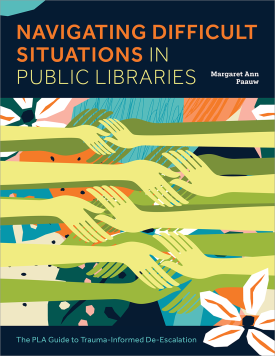If You’re Funny You Can Get Away with A Lot – PL Talks to Author Joshilyn Jackson
Joshilyn Jackson’s new novel, Someone Else’s Love Story, is already accumulating accolades: it’s a #1 Indie Next Pick, an Amazon Best Book of the Month, an Okra Pick, a LibraryReads Selection, a Bloggers Recommend Pick, and it received a starred review from Kirkus Reviews. In Someone Else’s Love Story, young single mom, Shandi Pierce, and her three-year-old son, Natty, are leaving their small Georgia hometown for her dad’s condo in Atlanta so she’ll be closer to college. Stopping at a convenience store on the way, they find themselves held at gunpoint during a robbery. The terrifying incident jolts Shandi out of her denial about her miracle son’s origins, and when her rescuer, William, a geneticist with Asperger’s, offers a way to find out what really happened the night her son was conceived, Shandi has to face the past to find her own love story. This is a funny and endearing Southern novel and deserving of all those accolades. Joshilyn Jackson spoke with Melissa DeWild by telephone on October 28, 2013.
Public Libraries: Someone Else’s Love Story definitely grabs you from the very beginning.
Joshilyn Jackson: Yeah, it’s always good to start out with some shooting.
PL: Right! One of the things I like about this book is that you tackle some pretty tough subjects, but yet I was laughing throughout the whole book. Shandi is hilarious despite everything she’s going through.
JJ: Yeah, I love that if you’re funny you can get away with a lot. You can talk about anything and people will still read it if you’re funny, and sometimes they won’t even notice. It’s a coping tactic in my own life. I’m funny, so I tend to get away with things. I can laugh at my own problems. Sometime I write these books with some intense situations happening and people will come up to me and say ‘that was so delightful’ and I’m like ‘what book did you read?’ The book tackles some pretty tough topics but Shandi is delightful. I enjoyed spending time with her.
PL: So did I. You write amazing characters that feel so real.
JJ: I really think character drives my car. I like a big ole scoop of plot and I like theme, but those are in the backseat.
PL: The three-year-old Natty is adorable.
JJ: One of the most fun parts of that book was writing a three-year-old. They’re so weird and so charming. I hate the literary convention that your children are intensely interested in whether or not you are satisfied in your love life. No child on earth gives two craps if his mother is having a satisfying romantic life—they just want to know if there’s macaroni and cheese for lunch. Parents are beloved and taken for granted like bed posts. Natty is a real kid to me, and a lot of his anecdotes are things I wanted to remember that my kids had done. I made them more extreme or changed them a little bit, but I got to remember my children at three and give Natty their quirks and vocabularies.
PL: William is also a great character. He’s another character you’ve written with sensitivity and humor.
JJ: William I’ve been wanting to write about for close to a decade. William is very hard to write about because he’s so sad, and he is very present. My yoga teacher would approve of William. He doesn’t project or regret very much. He analyzes, chooses, reacts and acts much more than he regrets or worries; therefore when you have a character like that you can’t start with a regret or a threat because they’re not very in the now. William is a person who lives in the now. He’s very aware and analytical and grounded in what’s happening. He had to start from a place of terrible nothing because a regret or a threat is not that compelling to him. He had to start from a now that is almost unendurable, and that is a very depressing book. So I wanted to write him, and I could never find a way in. I would just write page after page. No matter what I did with William when I would try to write him earlier he was always trying to walk into the sea or off cliffs and that is not a good beginning for a book. If your narrator offs himself on page 23, your book is done, and you’re only on page 23.
I knew the William book would be about miracles. It would be about these huge overblown fake miracles that are all revealed to be earthly, explainable, scientific, non-bothersome, non-mystical. Then I started writing this book about a young woman named Shandi Pierce who’s experienced a virgin birth. She was living in Dahlonega or a fictionalized version of Dahlonega. I don’t think I ever say what the town’s name is, but it’s Dahlonega. She’s experienced this virgin birth or so she says. I’d been writing this book, and as theme got into the car and became more present, I was like this is the William book. I’m writing everything that I wanted to address with William, but I have this spitfire, this funny, sassy little mess who’s all chuffy and forward shouldered and stampy and meaning it and passionate and alive. She’s a thousand different colors. I thought, what if it’s their book? What if she’s the multi-colored bedazzled hammer who smashes William’s gray rock and he’s a geode in there? What if she smashes him open and he’s all diamonds? So I pulled her out of Dahlonega. I sent her to Atlanta, and I sent William out her way and brought them together at a Circle K.
PL: Very effectively, I might add.
JJ: Well, these are not people whose lives are going to normally intersect. I’m playing with ideas of destiny, what destiny means. William and Shandi have very different definitions of destiny. They should meet in a random way that is uncommon and scary that feels like destiny. William who’s been wanting to walk off a cliff since I’ve met him. What a golden opportunity for William, eh?
PL: Absolutely. You did such a great job of portraying William, and I loved the vegetable book that he uses to learn about emotions.
JJ: That book is based on a real book (How Are you Peeling? by Saxton Freymann and Joost Elffers). It’s a great book except there are also some fruits in the real book, which is bothersome to me. I just used whatever vegetables I wanted to use. I didn’t want to have to say some weird squash that nobody knows what it is. I wanted to say turnip. What I’m seeing as a person who has more than one relative on the autism spectrum is it’s becoming more and more common, partially because it’s being diagnosed, but also because with technology being the way it is these people tend to be more successful. Successful, functional adults marry each other and have children. This is just a pretty common personality type. There’s going to be more and more of them. This is what the human race is going to look like. Let’s find ways to navigate that as a normal part of life.
PL: Your novels really show empathy for unique characters and misfits.
JJ: I think I would have been sent to the island of misfit toys. What’s funny about people is I think the vast majority of us see ourselves as outsiders, and I think that a lot of times you can’t get into those idealized insides because they don’t actually exist. There are a lot of missed connections. ‘Only connect,’ E. M. Forster said. I’m very interested in the concept of how you make home, how you get it, and how you fight for it, and how you keep it.
PL: You explore those ideas really well. I notice your novels also tend to be critical of the church.
JJ: I do tend to be critical of the church but it’s the criticism of a person inside the church. I love the church and I know what a powerful force for good it can be. I want it to live into that. I’m standing inside it and loving it and wanting it to be its best self. Not to say I’m not the problem sometimes, but it’s a necessary component for me to be actively practicing faith.
PL: I can see how that influences your writing. Does narrating your own books also affect your writing? Do you read aloud your drafts?
JJ: I’ve always read aloud my drafts. I started as a theater major and playwright. I block out action scenes. I block them the way you would block a scene for a play. By the time a book is published at least all of the dialogue and most of the scenes have been read aloud. That’s just part of my process. I need to hear it, and I hate internal rhyme. I hate it when you’re reading something and you’ve accidentally iambic pentametered. It happens all the time. When I was reading Someone Else’s Love Story, I found one I missed. I have a rhyming couplet right in the middle of it. A rhyming couplet snuck right in there.
PL: You have to watch out for those rhyming couplets! Getting back to your latest book, what are some other details that are based on reality?
JJ: The Atlanta condo is Karen Abbott’s. Also, there’s a city I’ve been in love for a long time because of their Book Fest. I moved here. I’ve been in love with this place for ten years. It’s Decatur, Georgia. I love it. I love it. It’s super farm to tabley with lots of thrift stores and coffeehouses and art fartery going on. It’s just great. The little painted brick bungalow where Bridget’s parents live with the purple door—that little bungalow is my house, exactly. I just put my house right in the book. I was so in love with it. The town Shandi comes from is Dahlonega where I go for a literary fest and sometimes go up to the mountains to write. I really love sense of place, and I don’t try to be exact. I’ve been fussed at for putting Krispy Kremes in Montgomery where there aren’t Krispy Kremes because I don’t really care. If I need a Krispy Kreme there, then I put it there. It’s a cityscape. I think that’s why I didn’t say it was Dahlonega even though it is pretty faithfully Dahlonega. I’m trying to invoke the feel of a Southern city or the feel of a small Southern town. When you’re invoking sense of place there are some books that are really interested in portraying a place exactly as it is. There’s value in that, but what I’m more interested in personally is invoking a sense of place that is more universal. I don’t want somebody who’s gone to Dahlonega to be like ‘Oh, this is Dahlonega.’ Anybody who’s been to a small Southern mountain town will find elements of what makes that place so special. They’ll go, ‘Oh that’s what it’s like there. That’s true. That’s not the café I went to, but there was a café.’ I don’t think I could write something set in a place that I didn’t know what it really smelled like after the rain. I wrote a book where the last third of it was set in California, where I’ve been through on a book tour and did a weekend trip to San Francisco once but I didn’t know it that well. So I went to California for three weeks and moved into my friend’s basement. I just walked around looking at stuff, taking pictures, and smelling stuff. I still don’t think I could write what California looks like to a native Californian, but I didn’t have to do that. I just had to say what the Bay Area looks like to a redneck from Alabama, which I think I’ve got that covered. I put those things in because I want the condo to feel like a real city condo and the small mountain town to smell like a small mountain town.
PL: You document episodes from your real life in your often hilarious blog, Faster Than Kudzu. I am still laughing about the worm post.
JJ: That is a perfect example of how my books work. All those dead worms were so horrifying to me. How do you survive this horrible worm abattoir? So I turned them into letters. It’s a black and salty humor. That’s the kind of humor that’s inherent in my books.
PL: What books do you enjoy reading?
JJ: I’m doing something interesting this year—I joined a classics book club. I realized I haven’t read anything except contemporary fiction of one stripe or another for the past five years. I’m so drenched in it. I like to read what’s out right now because I feel like literature is a conversation, but joining this classic book group has been delightful. We’re reading The Natural by Malamud. For contemporary books, I’ve enjoyed Shine, Shine, Shine by Lydia Netzer, Where the Moon Isn’t by Nathan Filer, Crooked Letter, Crooked Letter by Tom Franklin, and Lee Child’s Jack Reacher novels. Right now I’m reading We Are Water by Wally Lamb.
PL: And finally, what role have libraries played in your life?
JJ: I grew up in libraries. My dad was Army, and we moved a lot. My mom is the kind of person who would find the library before we knew where there was a Piggly Wiggly. She read aloud to me all of the time. Books were my best friend. We would move, and I knew Trixie Belden would still be there. When we moved to Decatur, my kids got their first library cards. They got limited edition Pete the Cat library cards for Christmas. I love the library.












